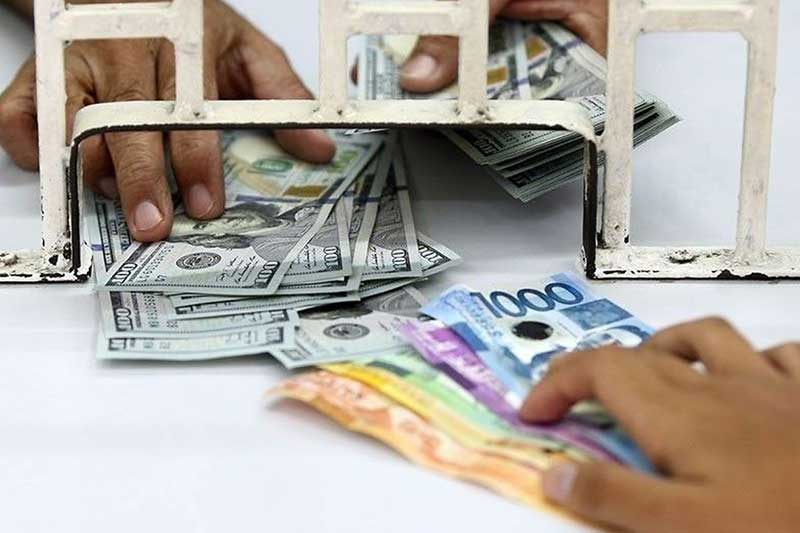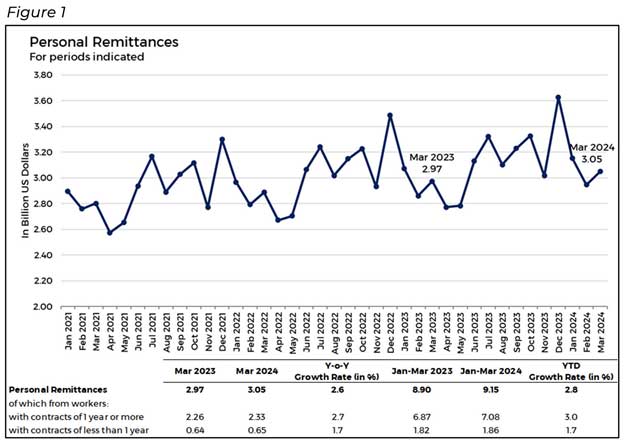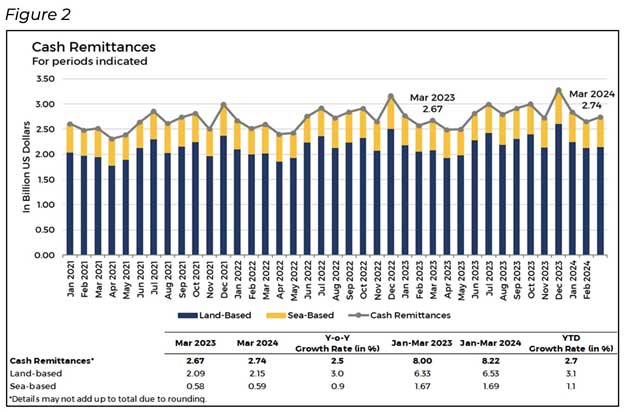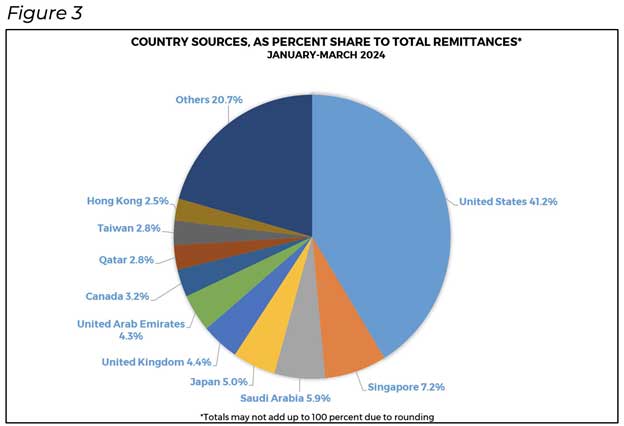
Personal remittances from Overseas Filipinos (OFs) rose by 2.6 percent to US$3.05 billion in March 2024 from US$2.97 billion recorded in March 2023.
The increase in personal remittances in March 2024 was due to remittances from 1) land-based workers with work contracts of one year or more and 2) sea- and land-based workers with work contracts of less than one year.
For Q1 2024, personal remittances increased by 2.8 percent to US$9.15 billion from US$8.90 billion in Q1 2023.

Of the personal remittances from OFs, cash remittances coursed through banks amounted to US$2.74 billion in March 2024 from US$2.67 billion posted in March 2023 or an annual increase of 2.5 percent. The expansion in cash remittances in March 2024 was due to growth in receipts from both land- and sea-based workers.
On a year-to-date basis, Q1 2024 cash remittances amounted to US$8.22 billion, higher by 2.7 percent than the US$8.00 billion registered in Q1 2023.

The growth in cash remittances from the United States (U.S.), Saudi Arabia, United Arab Emirates (U.A.E.), and Singapore contributed mainly to the increase in remittances in Q1 2024. In terms of the countries where these remittances originated, the U.S. had the highest share of overall remittances during the period, followed by Singapore and Saudi Arabia.[1]

[1] There are some limitations on the remittance data by source. A common practice of remittance centers in various cities abroad is to course remittances through correspondent banks, most of which are located in the U.S. Also, remittances coursed through money couriers cannot be disaggregated by actual country source and are lodged under the country where the main offices are located, which, in many cases, is in the U.S. Therefore, the U.S. would appear to be the main source of OF remittances because banks attribute the origin of funds to the most immediate source. The countries are listed in order of their share of cash remittances, i.e., from highest to lowest.




















